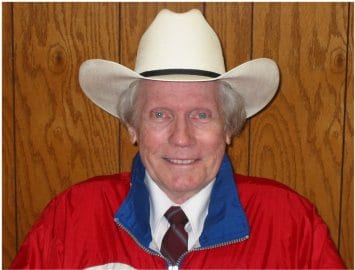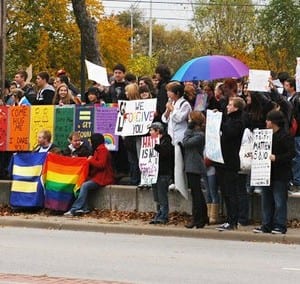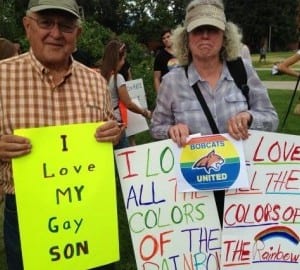
On March 19, 2014 Fred Phelps, founder of Westboro Baptist Church – owners of domains like godhatesfags.com, godhatesamerica.com, and godkillssoldiers.com and infamous for their protests at over 54,000 funerals of soldiers, gay activists, and child victims of massacres – died.
Phelps has long represented to me and many others just how dangerous unbridled religious fervor, manifested in hateful words on neon signs directed at societies outcasts, could be. His words hurt, and they infected people deep down – especially those sitting directly under his thundering voice, evidenced by his legacy in the continuation of Westboro.
Fred Phelps proved to us that words hurt; especially when sung loud enough, long enough, and with enough conviction behind them.
Phelps also proved that, when confronted with long and loud and convinced words of hate – it must be met by an equal or greater force. Fred showed us how to love the disenfranchised in ways that he couldn’t by forcing us to examine ourselves through his eyes and the eyes of his god.
I think Fred Phelps and his church and his family, for the fact that they have shown us how ugly we can be and in turn drive our desire to be better, are an invaluable part of the last two decades – despite the pain they’ve caused, the words they’ve used, and the passion with which their angered hatred burns.
Fred Phelps and Westboro Baptist Church haven’t been successful in spreading their message. They’ve been successful in ensuring that it’s the most hated message in the country – they’ve been able to bring people together from all walks of life to shout louder, longer, and with deeper conviction a better message in opposition to that of Westboro: Love.
That’s the real legacy of Fred Phelps – he’s unified a great portion of the country against his message, and the results of that unity have been beautiful.
I’m not sure that the LGBT community would have the support it does without Phelps and Westboro. That’s a legacy Phelps may not have been proud of, but it is his – and I’m thankful for his life because of it.
In closing, I’m not going to give you platitudes about how you should react to Phelps death. I will remind you that, as the old saying goes, “an eye for an eye makes the whole world blind” and that perhaps during the Phelp’s families time of grief the rest of us ought to show the grace they haven’t.








